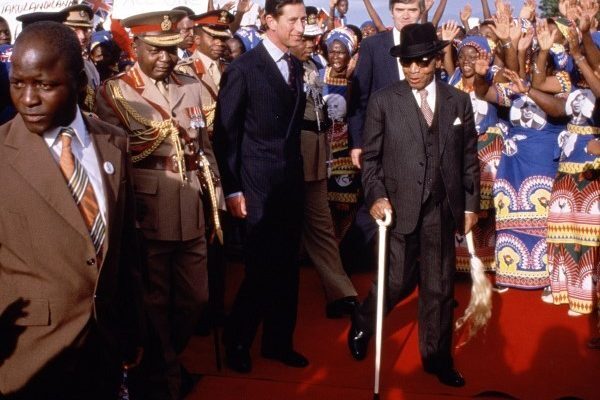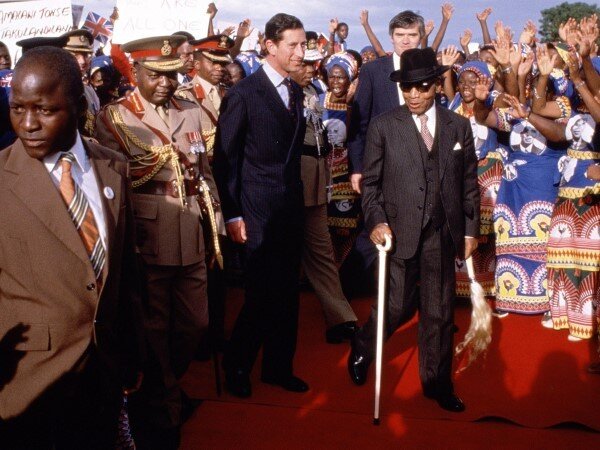
Multiparty democracy came to Malawi with the capitalist economy. It shifted the means of production from the state to the free market.
Its immediate effect was the loss of jobs for millions of people and the end of state’s direct control on production. It left people at the mercy of private traders. Prices of goods went up, among others, and Malawi has taken ages to adapt to the change and find a working path to achieve its former 1970s economic boom.
The miseries of multiparty democracy in Malawi went beyond an economy that was characterized by failure. In general, everything took the worst turn. Organized corruption and crime were some of the ills Malawi had, and continues, to endure. But the failure of multiparty democracy can be summarized from the perspective that although we managed to remove Dr. Banda, we have so far failed to replace him.

Dr. Banda had the privilege of power security than what the multiparty democracy leaders have. The fact that we have to vote every five years to elect new political leaders puts their power at the mercy of the people. The motive of every action therefore aims at pleasing the voters and this exposes the nation to short term policies that have to achieve immediate development results.
This has also wrongly re-shaped our politics. The fight for power and votes has sacrificed the best we deserve. But this should not be blamed on the people or that the multiparty system is counter-development, as some suggest. Sustainable development happens when the people are involved. Multiparty democracy makes sure that people get involved in all the processes, and so far, it is the best practice, conceived from man’s natural need for freedom and rights.
Our challenge is that we have multiparty democracy with a total lack of democrats. The people that removed Dr. Banda from power in 1993 / 1994, mostly from the United Democratic Front and Alliance for Democracy parties, have been documented in our history books as democrats. But when they achieved power, what came out of them was nothing close to democrats. The attempt to change the constitution in 2002 / 2003 by President Bakili Muluzi to allow for a third / open presidential term vindicates this.
Politics, usually, is reactionary to its past. Precedent matters a lot. The future depends on the attitude of the present leaders to the precedent set by the past leaders and their knowledge of what went wrong and right with them. But it always needs a special brand of political leaders. Often our attempt to look into the past has been filled with leaders who want to demonize their predecessors for political gains. President Muluzi had President Banda arrested. President Bingu wa Mutharika had President Muluzi arrested. Presently, President Peter Mutharika wants President Joyce Banda arrested. That is the Malawian story.
Our failure as a nation to live to our full potential has been betrayed by a number of factors. Some are clear cut while some are arguable, largely, for the latter, depending on one’s political side. And that is it: Our attitude of looking at everything through [partisan] politics has greatly affected our direction as a country and our pace of growth.
When we say today that Malawi ranks as one of the poorest countries in the world, this is not as a result of the failure of our economics, but politics. The economy reacts to politics. The lack of clean and transparent politics has greatly affected the strength and the nature of our economy. The suggestion is not that we make our politics into perfection. There will never be anything like that. But when our political institutions are failing to force political leaders into being accountable since they have political power, fail to give independence to the anti-graft body to pounce on anyone, despite him being in power or not, or people are failing to resist the actions of government for fear or losing their economic or social rights, it tells a story; there is more work that has to be done in making our politics right.
Truthfully, it takes time. The making of a system is usually about patience and willing to give time its power over such human affairs. But when politics is failing to open up, to let that change happen, it frustrates time and as a result the wrong status-quo remains and turns into the accepted normal. This has been the story of Malawi. We are looking for change. But we are not willing to make the necessary conditions for that change to happen.
Every leader in Malawi has come on the platform by offering hope to Malawi. But at the end of the office tenure, it easily gets noted that we have gone a few steps back. The obsession with playing the ‘right’ politics to please the people has been one of the reasons that derail our progress. Political leaders care more about the next election than the kid that will be born fifty years after them. The approach has always been inward, and as a nation, we are devoid of people who can make bold decisions.
About the writer: Wonderful Mkhutche is a speech writer, a political scientist and a manuscript editor and developer.















Aaa is fair to do that how much would you spend?
Thus True
Is treu
For sure! !!!